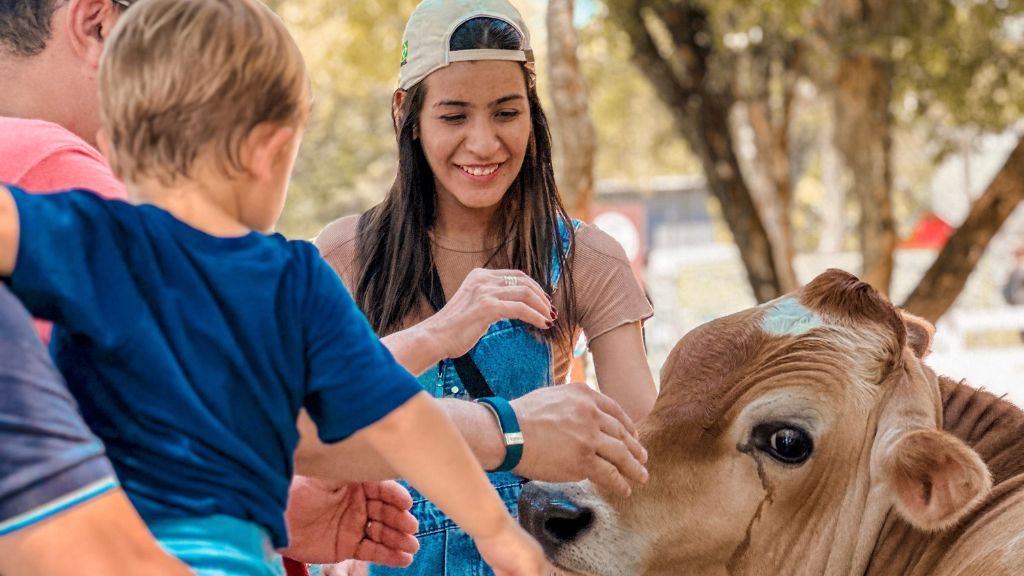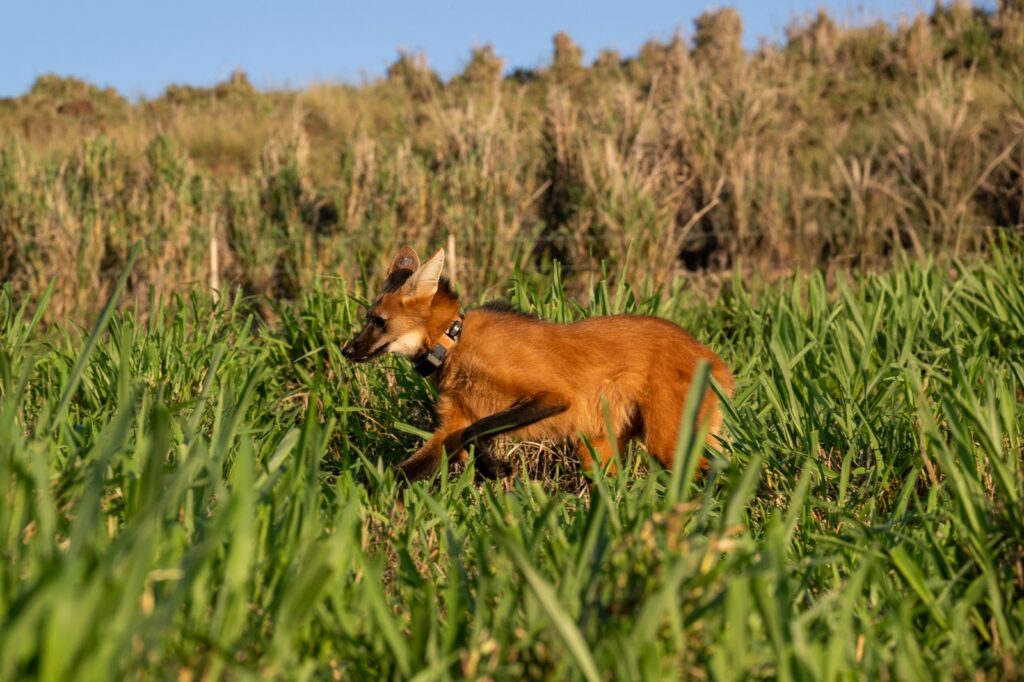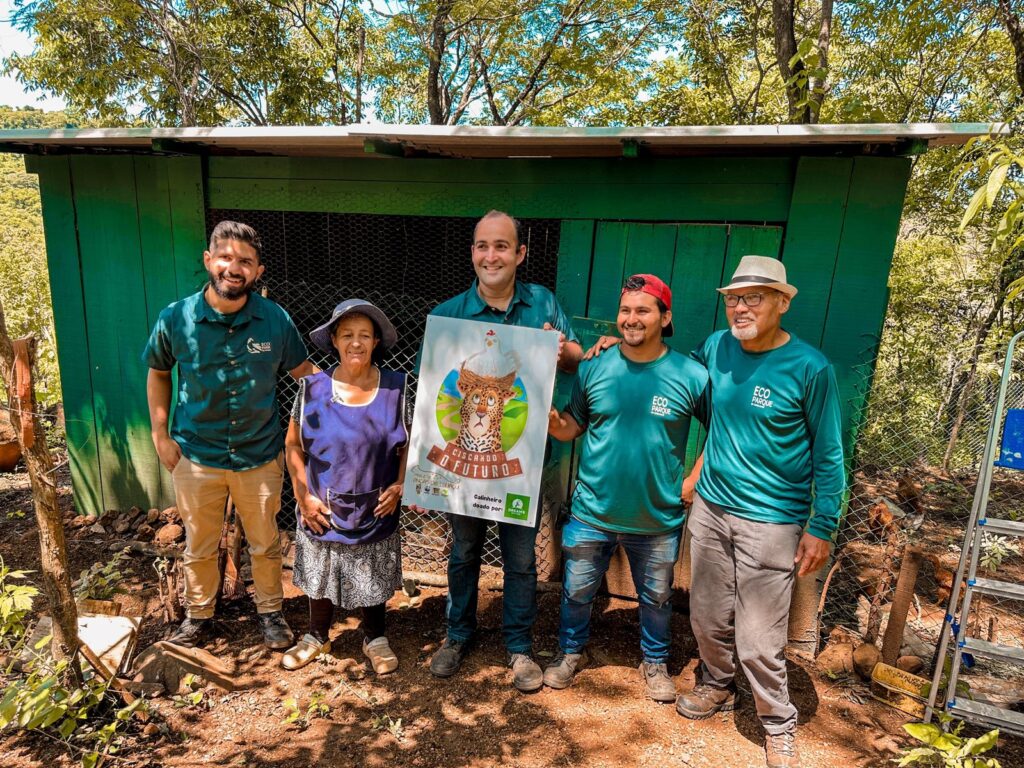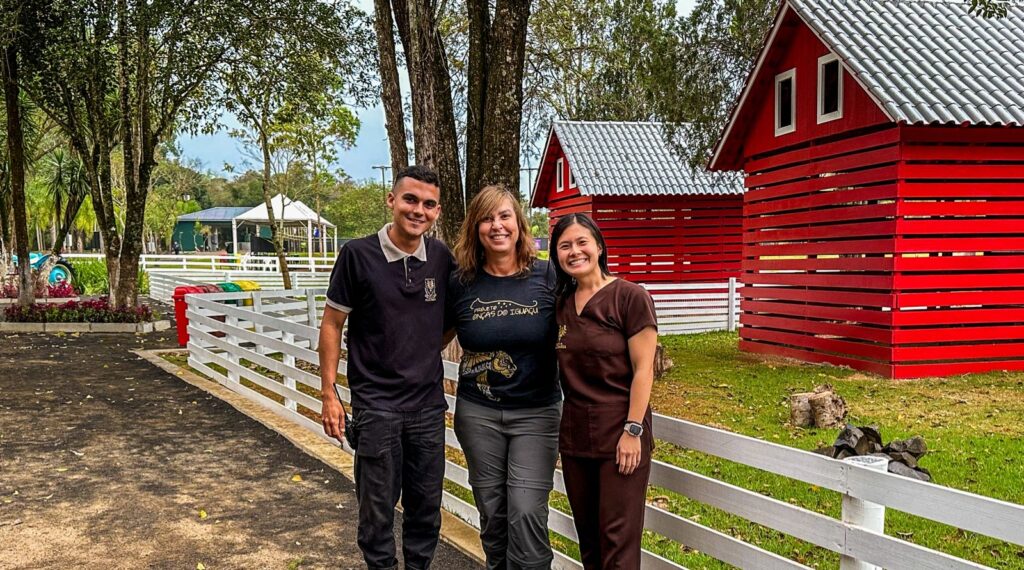Foz Eco Park recorded a 50% increase in January in the number of people interested in learning about the work carried out at the unit to tell the story of the relationship between human beings and other animals, compared to the same period in 2023.
One of the families was the Salomone family. They came from Asunción to get to know Foz do Iguaçu and the work of Eco Park. "We came with the whole family. We really like this connection with nature and animals. The children are loving it and so are the adults," said Nícolas Salomone.
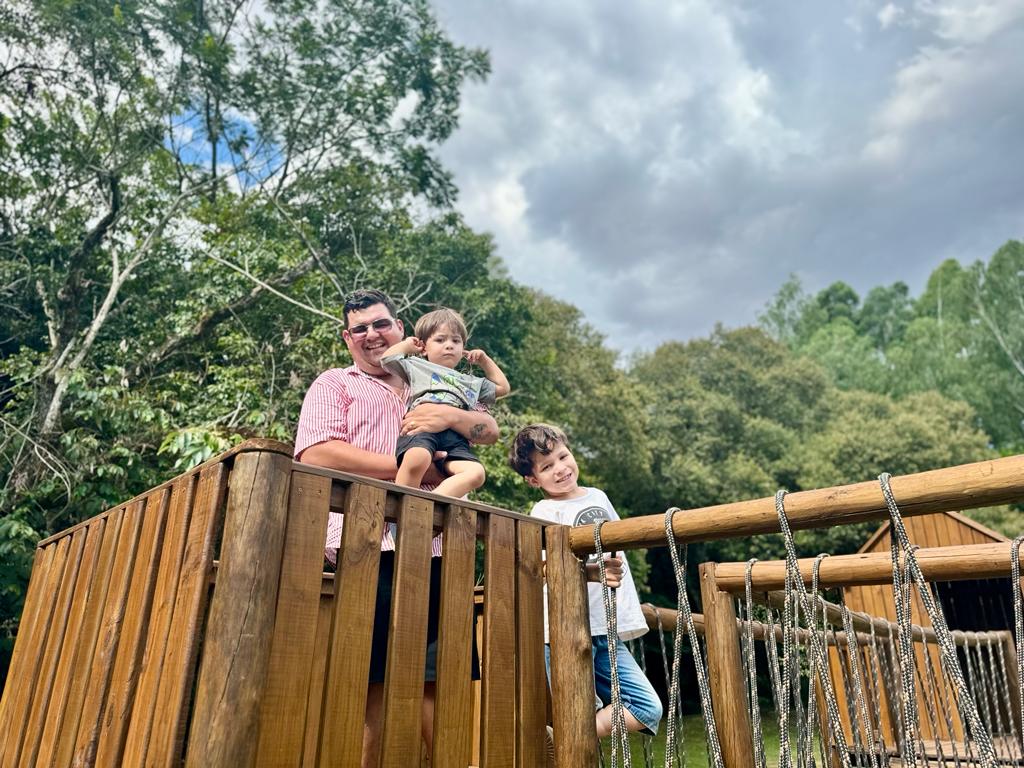
José Luiz Bernal also took advantage of his vacation to connect with nature. "This is an incredible place to get the little ones out of their apartments and away from their screens. Here, they can run, play, walk barefoot through the grass and also learn about the habits of the animals," he said.
Five-year-old Lia loved being able to feed the rabbits. Her mother, Lara Amani, said that watching the horse show reminded her of good times from her childhood. "My family raises horses. I grew up around them. At the Eco Park I relived good memories".
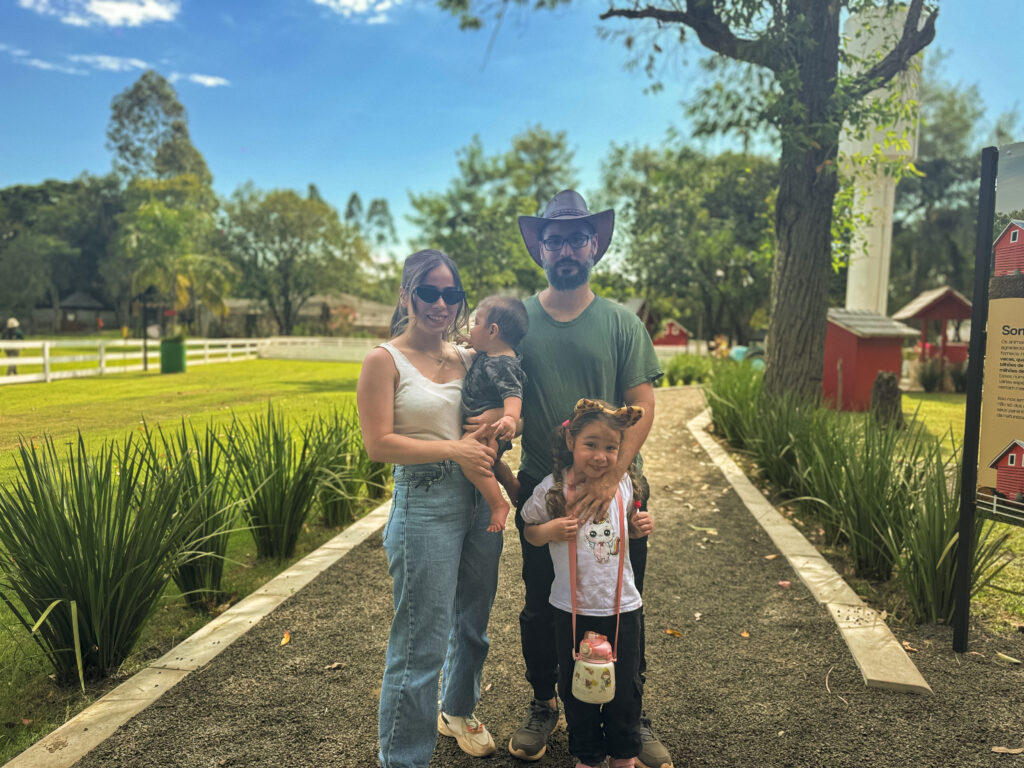
For Eco Park's institutional coordinator, Igor Morais, this feedback and the increase in attendance further reinforces the team's commitment to being a reference in caring for animals and encouraging their natural habits, carrying out research and educating visitors about the importance of environmental conservation. Part of the income from tickets goes towards sponsoring Onças do Iguaçu.
The project studies the big cats and encourages the residents of the Iguaçu National Park to live in harmony with them, a symbol of Brazilian biodiversity.
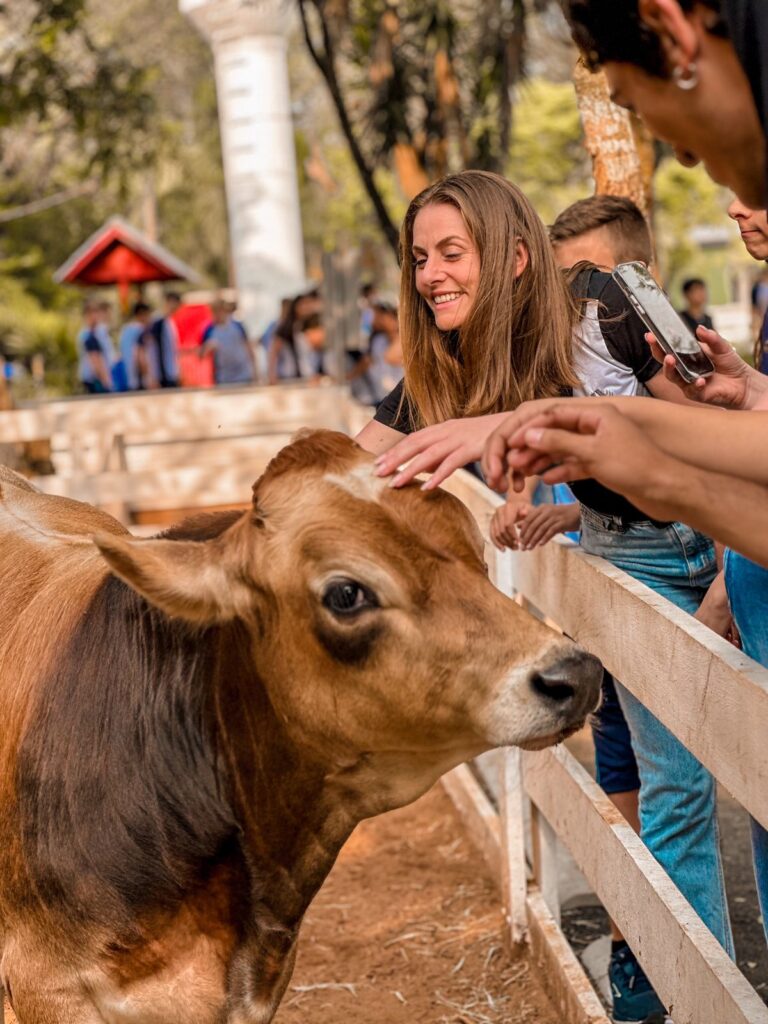
The visit
A visit to the Eco Park is more than just a walk, it's an immersion in human history and the more than 200 animals that live there.
The tour begins at the little farm, where adults and children learn about and participate in the process of domesticating animals such as rabbits, llamas, ostriches, guinea pigs and mini goats.
At Imersão das Aves you come into contact with birds, most of which have been rescued from wildlife trafficking and mistreatment.
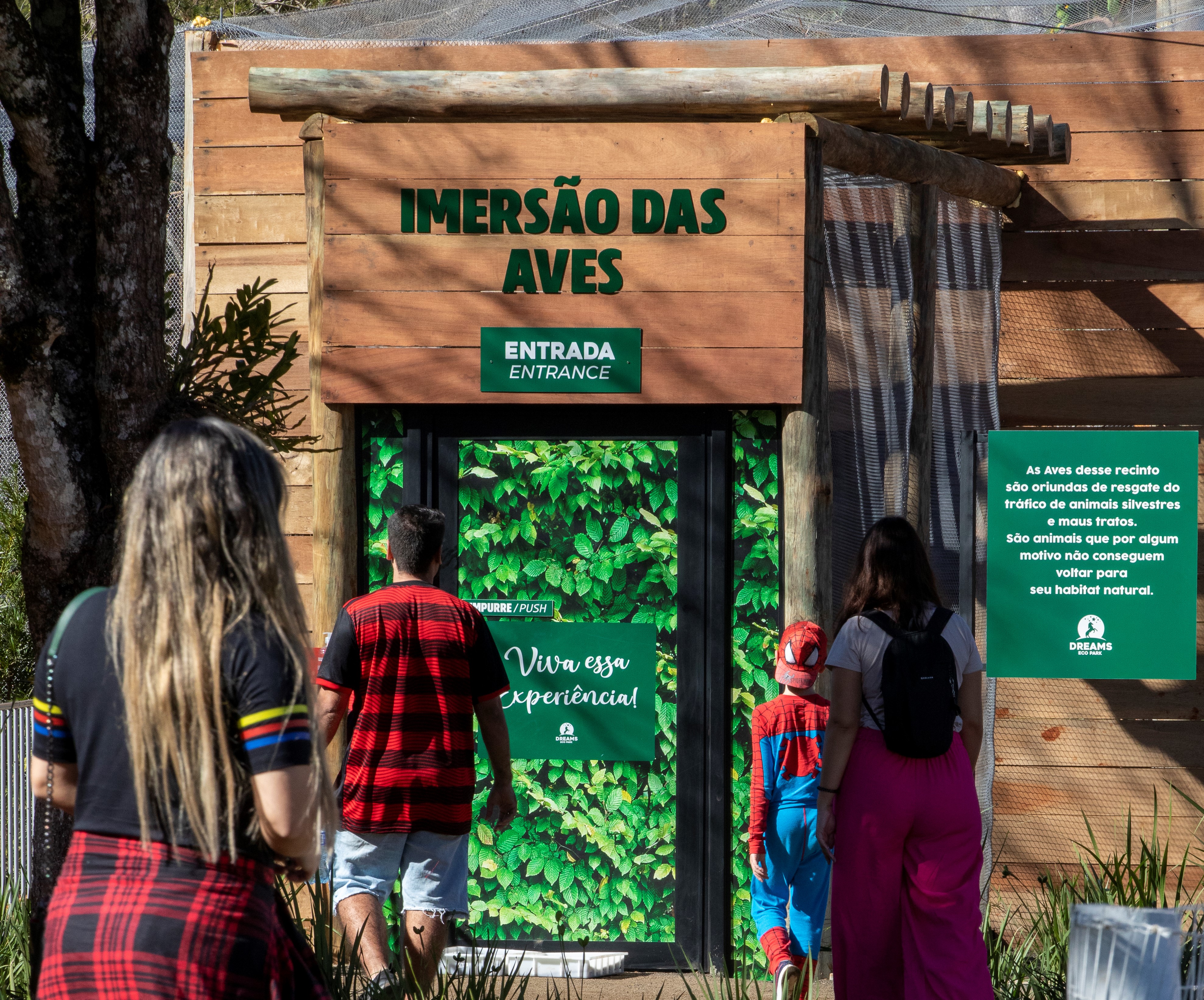
Afterwards, visitors can watch the presentation of the Crioulo Horse and the flight of birds of prey: at 10am and 3.30pm.
The presentation of the Horse takes a walk through the history of South America and the Border through the origins of the Creole breed.
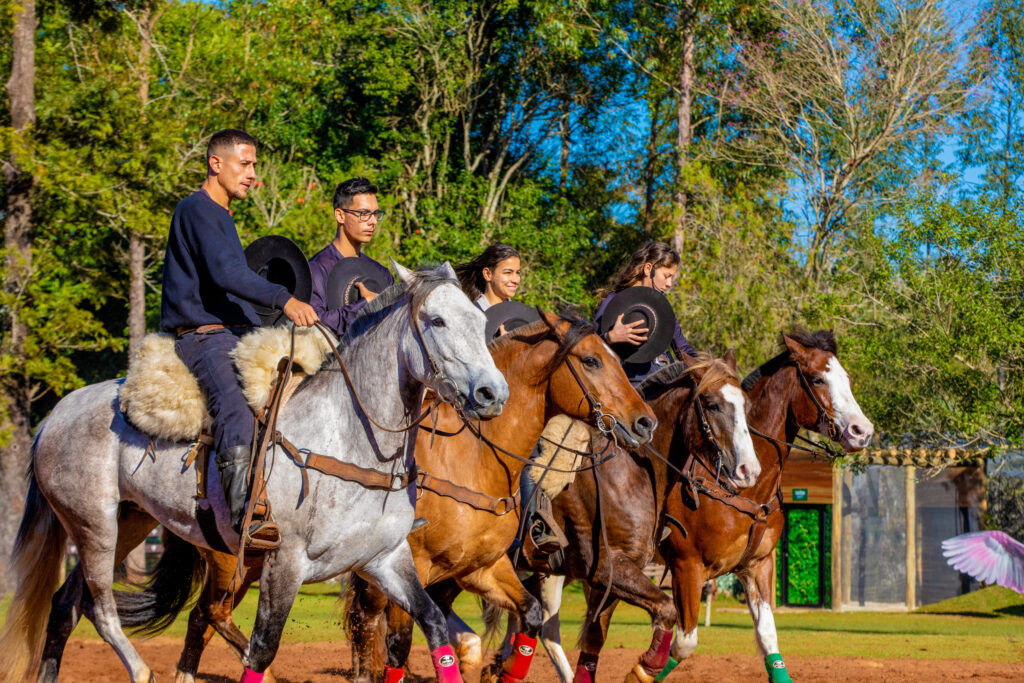
The bird flight is a time for education and learning about the protection and rehabilitation of birds of prey that have been taken in.
"Our whole job is to encourage the animals' natural behaviors, even though they live in a park," he explained.
In the presentation on birds of prey, for example, it is possible to observe their flight in search of food and learn about the origins of the art of prey conditioning and its historical importance in the development of society and the conservation of species.
"This year, we want to open the Primate Forest where visitors will learn about the positive and negative impacts of humanity on wildlife," said Morais.
Location
The Eco Park is located at Rua Cruz Alta, 111, and is open daily from 9am to 5pm.
Residents of Foz pay R$15. If you are accompanied by a paying tourist, entry is free. Children under six are free. Iguaçu residents accompanied by tourists get in free.

